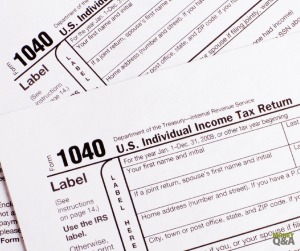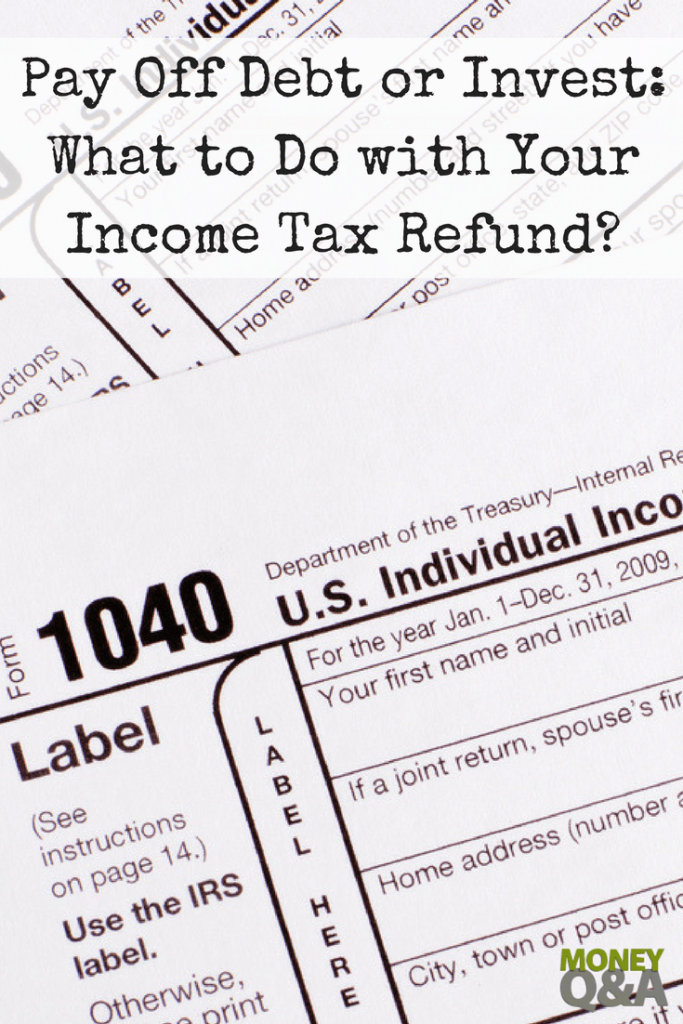
Just like how receiving a big tax refund isn’t always a big deal, putting that money towards something that’s more “entertaining” than “responsible” isn’t always a bad option either. What you should do with your income tax refund depends on your current financial situation and your ability to manage the debts currently in your name. Should you pay off debt or invest or something else entirely?
Pay Off Debt or Invest – What to Do with Your Income Tax Refund?
If you’re part of the 70% of Americans the IRS anticipates will receive a tax refund in 2017, here are a few considerations to make before spending or setting aside the money:
Pay Off Debts
Most Americans carry some kind of debt, whether it’s credit card balances, auto loans, student loans, or a mortgage. If you have high-interest debt, it’s generally wise to pay off the higher interest-accruing debts before paying off bigger balances with lower interest rates. A tax refund would be a great way to put a dent (or completely wipe out) your high interest debt, since this is oftentimes an unexpected source of money in the middle of the year.
Since personal finances could affect your job, it’s important to keep your credit ratio in check by limiting your balances to 30% of your overall credit limit. If you’re currently maxed out on a card or two, or you’re carrying a hefty balance, consider putting a majority (or all) of your tax refund towards paying off these debts for greater financial stability for the rest of 2017 and beyond.
Start an Investment Account
Paying off debt isn’t the only option you have when it comes to appropriately allocating your income tax refund. Some people choose to invest even while they’re carrying debt, because the long-term returns on investment might outpace the interest rates they’re paying on those debts.
For instance, you could simultaneously save for retirement while paying off debt because retirement is something you undoubtedly want to save for as early as possible, as much as possible in order to maximize your available funds in your golden years.
To accomplish this, you might want to use a portion of your refund to pay off some debt, and put the remaining funds into an investment account. You can easily accomplish this with a robo-advisor like Betterment, which will then allocate your money into different types of investments based on your goals.
Alternatively, you could set up a passive income stream by investing with Lending Club. Peer-to-peer lending is increasingly popular in 2017, and it will likely get even more traffic in the years to come as banking customers flee their fee-heavy institutions for loans from everyday folks like you and me.
Treat Yourself and Your Family
At last, we arrive at the “entertainment” option. If you feel secure in your financial situation and you already make regular contributions to a retirement account and/or an investment fund, then why not treat yourself and/or the family to something you’ve been wanting to splurge on for quite some time? Maybe you want to go on a great summer vacation this year, or you’ve been saving towards a down payment on a new(er) car.
The main purpose of tax refunds is to encourage taxpayers to pump money back into the economy by spending it anyway, so there don’t worry too much about making the most “responsible” choice for spending your tax refund. If you’re in a good place financially with little debt and a decent amount of money in investments and savings, then go ahead and treat yourself this year.
There are many different routes through which you can direct your income tax refund this year, and unless you are struggling with a significant debt burden with a high interest rate attached, the optimal choice depends on your personal preferences. If you haven’t filed your taxes yet and make less than $64,000 per year, be sure to use the IRS’s free file software to save money on tax filing and maximize your returns later.
Given the average tax refund is $2,800 per taxpayer, you might not wipe out a student loan debt or be able to pay for a new car with your refund. However, you could take incremental steps towards eliminating debt, improving your credit score, and saving for the future with this little windfall from the government, so take some time to plan out how you’ll want to use the money before it arrives.
What about you? What are you going to do with your income tax refund? Are you going to pay off debt or invest? Or, are you going to do something else?

